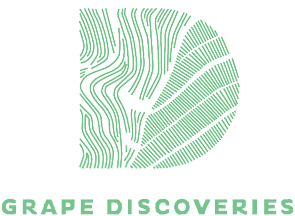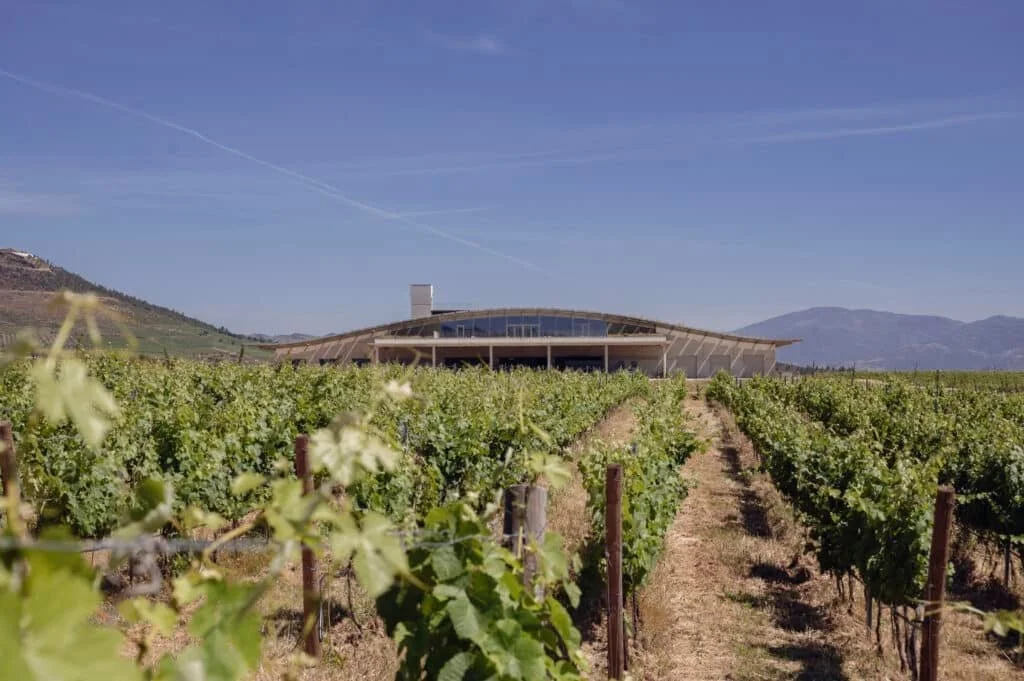Portugal Forward: The Symingtons, Rob, Charlotte and a matriarch
Rob and Charlotte Symington
To be young and have experience … an AI fantasy perhaps? Well, actually, multi-generational Anglo-Portuguese wine producers the Symingtons have this profile in Portugal.
A few years after he joined his family’s company, in 2017, Rob Symington told me: “We are an old company but not old-fashioned.” Six members of the fifth generation (including, for the first time, three women) and two members of the fourth now lead the company.
This year, Rob became co-CEO of the family business, Symington Family Estates, alongside his fourth-generation cousin, Charles. Charles continues with responsibility for wine production, while Rob is responsible for just about everything else, under the chairmanship of fourth-generation Rupert Symington and with active participation from several family elder statesmen.
I recently met Rob, 41, and Charlotte, his younger sister by 18 months, responsible for marketing, at the Symington’s head office in Vila Nova de Gaia, the historic Port lodge district opposite the city of Porto. Neither sibling favours the corporate suits that dull down so many businesspeople.
Symington – Adega do Ataíde
As we talk, I’m struck by the Symingtons’ resolute embrace of contemporary thinking in a wine trade sometimes considered conventional. “With everything from the vineyard to the way in which we communicate about our wines, we feel we’re at the forefront of innovation for our category, and we’re extremely proud of this. We need to respect our heritage, but we’re taking the entire business into the 21st century,” Charlotte explains.
Before returning to Portugal to join his family’s company, Rob co-founded Escape The City with a mission to help a million people discover greater meaning and purpose in their careers, to more closely align their work-life goals. Charlotte worked for White Cube art gallery, in London, before a spell as Symington’s brand manager at Fells, the family’s distributor in the UK. “Today we all come in based on our merit, the added value we bring, rather than our surname,” Charlotte observes.
Surviving and thriving through evolution
“When my father started his career here, we were a Port company. Today we are a Port, wine and hospitality company, operating in three Portugal regions, as well as in Hampshire in England,” Rob comments.
Their father is Paul Symington, SFE’s widely respected chairman for 16 years until 2018. “In the 70s, when dad started, we employed about 100 people and were solely focused on Port; today we’re 650 with three pillars to the business.”
Rob and Charlotte frequently reference their father and often call Paul for his advice.
For many family businesses, succession and the passing of the baton to the next generation can be synonymous with acrimonious wrangling and lasting bad feeling. The Symingtons seem to achieve generational transition seamlessly, through pragmatism and one suspects strong bonds of affection.
Symington – 5th Generation
Charlotte continues: “We plant a vineyard today and you’re not going to reap the rewards for 15 years. That long-term mindset is so important and valuable in the world of wine. We want the sixth and seventh generations to be doing what we’re doing, though they’ll perhaps be doing it differently.
“After over 140 years, we’re the lasting remaining premium Port shipper owned by a single family, and this probably isn’t chance. Our family expertise will never disappear; however, you need to bring on fresh ideas and give younger members an opportunity.”
On joining the family company, Rob set about rooting the Symingtons’ natural wish for business longevity in a serious sustainability strategy. “We’re integrating sustainability in the company’s core strategic plan, rather than having it as a nice-to-have bolt-on,” he says.
In 2019, these pioneering efforts were rewarded with Symington becoming the first wine company in Portugal to be awarded B Corporation certification (B Corps are companies assessed for the highest standards of environmental and social performance).
“I think people are the most important bit of any company. Having a positive culture which supports people in developing as professionals, so they can feel happy and motivated at work, is absolutely fundamental,” Rob remarks.
Charlotte adds: “We think that through our B Corp certification we’ve contributed to setting a standard. We’re very open about everything we’re trying to do – it’s a public facing thing.”
The Symingtons farm the largest area of organic vineyard in northern Portugal and their Adega do Ataíde winery in the Douro Superior has been granted Leadership in Energy and Environmental Design (LEED) Gold certification.
Visionary bets on the future
The diversification into still wines and tourism, set in motion early in this century with visionary foresight by Paul Symington and his cousins, is now rocketing along. “We do things from farming a vineyard to running shops and every step in between. We’ve made a lot of bets over the last five years as a company, whether it’s new wineries, new wine regions, new brands, a project in downtown Porto … our challenge now is to make sure that these bets deliver a return,” Rob reports.
It would be a fair guess to assume at least two factors have driven the Symington’s vineyard diversification: the rise in the international reputation of Portugal’s wines, due to a remarkable improvement in quality over the last couple of decades, and climate change – the Douro has low-yield, expensive-to-farm mountain vineyards, in an increasingly dry region.
In 2017, the hitherto Douro-centric Symingtons bought their first vineyard outside their beloved Douro: Quinta da Fonte Souto, in the Portalegre subregion of the Alto Alentejo. The vineyard is at altitude, ideal for making fresher styles of wines.
Quinta do Bomfim
This was followed by investments in vineyards in Vinho Verde as well as a joint venture in Portuguese sparkling wine with the Vertice brand. And then the almost unthinkable happened: in 2023, the Symingtons acquired their first vineyard outside Portugal, a joint venture with historic English fine wine merchant Berry Bros & Rudd.
Hambledon, on the South Downs in Hampshire, was one of the first English vineyards to really become established when “English vineyards were still a bit of a joke”, as Rob puts it. It was Rob who piloted the Symington side of this new project.
“You’ve got vines planted on similar soil types to Champagne, with the same varieties and similar climate, and in blind tastings, experts are struggling to tell the difference between Champagne and English sparkling wine. There’s an incredible opportunity, especially as climate change continues to unfold.
“Hambledon is similar to the Napa winery model in that half of the revenue and sales will be generated direct to the consumer and from the cellar door. We opened a restaurant on site in February that’s going really well. No one makes money in a short amount of time in the wine trade, but we believe that over 10-15 years Hambledon will grow and become a strong business as well as produce wines that can compete on the world stage.”
Matriarca
Beatriz Leitão de Carvalhosa Atkinson was the wife of A. J. Symington (known affectionately in the family as ‘AJ’), who founded the Symington’s Port shipping firm in 1882, and equally Rob and Charlotte’s great-great-grandmother.
By all accounts, Beatriz was a strong personality, and a hostess renowned for her warm-hearted gatherings. Beatriz, the matriarch, is the inspiration behind Matriarca, which opened in downtown Porto on June 20.
Rob takes us through the door: “Only one in four visitors to Porto comes to the Gaia side. For us, it was a no-brainer – we had to be on the downtown side of the city. We didn’t want to replicate a classic Port lodge experience – we already have Cockburn’s and Graham’s in Gaia.
“Matriarca presents Port and our still wines – in addition to other Portuguese producers and some of our international wine producer friends – in an aspirational 21st century environment. We want to showcase how relevant and exciting Port is. There are amazing restaurants all around the world, with young sommeliers working with Port in such an exciting way – we feel we have a responsibility in our new home in downtown Porto to showcase this dynamic.”
Symington – Matriarca, The Wine Bar
Built around a members’ wine club, Matriarca, a three-storey townhouse on Praça Carlos Alberto, houses a wine bar offering tapas, a cellar shop, a more formal restaurant with up-and-coming Porto chef Pedro Lencastre Monteiro in charge, a cocktail bar and wine academy, all open to the public.
Each space has been crafted by London-based designers Thurstan – led by James Thurstan Waterworth of Soho House fame – to reflect an Anglo-Portuguese sense of family and home.
Charlotte comments: “Ten years ago, Porto was hardly on the map. Now, we’ve just had our best May in tourism ever. Porto is about experiential, educational, cultural tourism. Being innovative doesn’t only mean you’re focusing on a younger consumer, and so we tend to talk about a ‘new’ generation of Port drinkers rather than a generation defined by age … they can be any age, male or female.
“The Port category is versatile, special and casual, and there’s something for everyone: chilled Tawny, white Port and tonic, a lovely LBV … different options which make the future of Port, in our opinion, very exciting.”
So, out goes “pass the Port decanter, old boy”, and in goes the bottle of Port, ready in the fridge door for any occasion, including that special Netflix evening.
Symington – Cockburn’s Cooperage
First published in The Portugal Resident, June 2025







